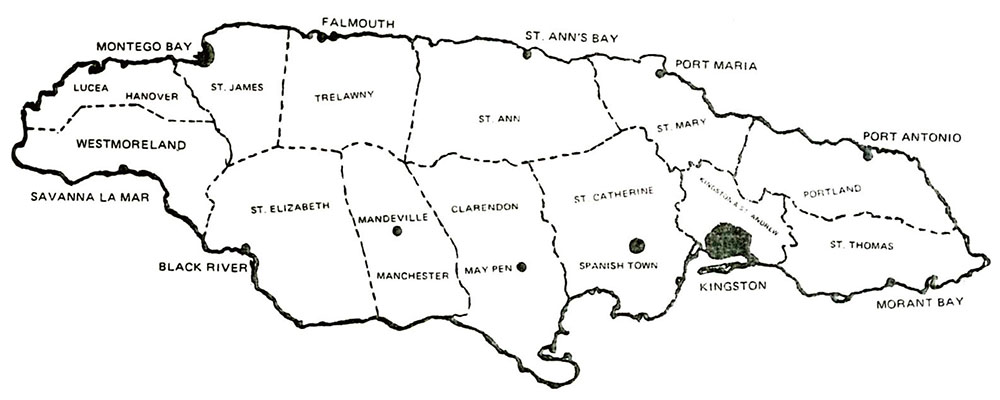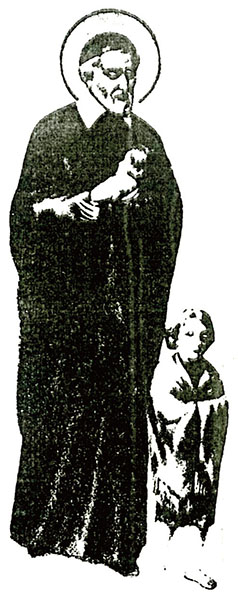The Society of St. Vincent de Paul
Seeking to find people in need wherever they are; to channel help where needed.
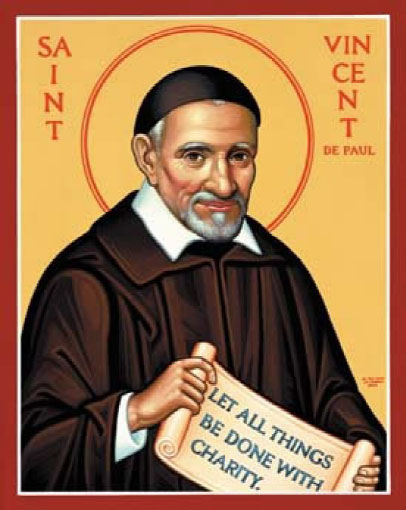
ABOUT US
The Society of St. Vincent de Paul is an international Catholic voluntary organization of lay people, men and women. Our society was founded in Paris in 1833, by a group of young Catholic lay people and older persons recognizing the plight of the poor sought to give them relief.
The founding members includes Le Taillandier, Frederic Ozaman, Paul Lamache, François Lallier, Jules Deveaux, Félix Clavé and Emmanuel Bailly. It is their ministry that led to the birth of the Vincentian family.
Vincentians are called to follow Christ through service to those in need and so bear to HIS compassionate and liberating love. We do this by offering help that alleviates suffering or deprivation and promotes human dignity and personal integrity.
OUR WORK IN THE COMMUNITY
Vincentians in the St. Elizabeth community give:
- Educational assistance to children of all ages through the payment of school fees, purchase of books and uniforms, as well as giving private lessons.
- Visiting the sick and elderly in the community, bringing them the word of the Lord, companionship and helping with medication, food, clothing, some cases payment of utility bills.
- We help unemployed persons with financial assistance to start their own business.
HOW DO WE ACHIEVE THIS?
Our work is financed through assistance from members of the St. Elizabeth Catholic Church through fifth Sunday donations, donations from funerals and the generosity of persons from the wider community.
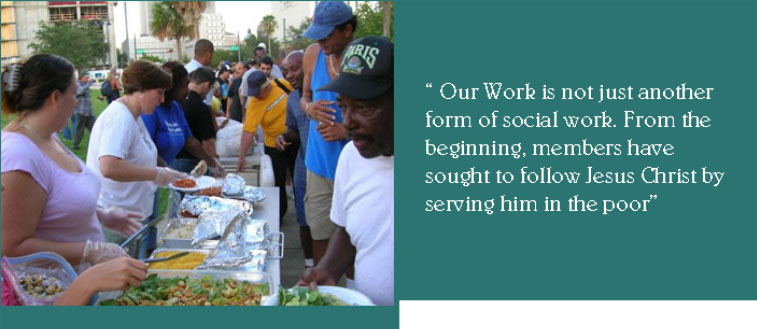
HOW CAN YOU HELP?
We appreciate your financial contributions and ask that you continue to do so, however we encourage you and invite you to give of your time and talent.
Our meetings are held twice a month on the 1st and 3rd Sundays immediate!y after church. Please feel free to join.
CONTACT US
The Society of St. Vincent de Paul
5 Ransford Avenue
Kingston 5
+1 (876) 926-7248
Valrie Virgo is the President of St. Vincent de Paul Society
The Vincentian Vocation
A mission statement describes the unique purpose in the life of an organization. It captures the values and the inspiration of the vision given to the members. Our Mission Statement captures the grace of our Vincentian Vocation:
Inspired by Gospel values, the Society of St. Vincent de Paul, a Catholic lay organization, leads women and men to join together to grow spiritually by offering person-to-person service to those who are needy and suffering in the tradition of its founder, Blessed Frederic Ozanam, and patron, St. Vincent de Paul.
As a reflection of the whole family of God, members, who are known as Vincentians, are drawn from every ethnic and cultural background, age group and economic level.
Vincentians are united in an international society of charity by their spirit of poverty, humility and sharing, which is nourished by prayer and reflection, mutually supportive gatherings and adherence to a basic Rule.
Organized locally Vincentians witness God’s love by embracing all works of charity and justice. The Society collaborates with other people of good will in relieving need and addressing its causes, making no distinction in those served because, in them, VINCENTIANS SEE THE FACE OF CHRIST.
Galatians 2:20. “I have been crucified with Christ; it is no longer I who live, but Christ who lives in me; and the life I now live in the flesh I live by faith in the Son of God”
It’s through your work that you are able to bring about change.
Take the first step by becoming a member of the Society of St. Vincent de Paul.
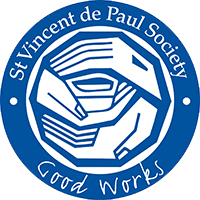
A More In-Depth Look at the Local Arm of the Society
STRUCTURE IN JAMAICA

The society also takes care of 45 aged women and 15 aged men at the Ozanam and St. Claire Homes. In addition, a salvage bureau or thrift shop is operated in the West End of the city of Kingston.
WAY OF LIFE
WHEN A MAN BECOMES A MEMBER of the St. Vincent de Paul Society, he doesn’t merely “join” an organization and attend a few monthly meetings. Far from it. He has embarked upon a new way of life.
The objective of the Society is the spiritual welfare of each member. The means employed consist primarily in assisting families in need, whether such need is spiritual or material.
Through a century and a half of existence, the Society seems always associated with giving food, clothing, fuel and medicines to the poor. This is largely because such were its works in the beginning.
Often the need for spiritual aid is so pressing that meeting material wants is just the start.
MANY GOOD WORKS
“No good work is foreign to the Society” is the intent of its Rule. There are marriages to be rectified, children to be baptized and sent to school. There are sick to be visited in hospitals, prisoners in jail, blind in their homes, cripples in wheel chairs; all waiting for a smile and the happy visit of a busy man who comes to them, not as a paid representative of a public agency, but as a neighbour who, because he loves Christ, loves them.
The Society is composed of parish units called Conferences. Meetings are held weekly and members are assigned in pairs to call on cases in the neighbourhood or at nearby institutions.
IMAGE OF CHRIST
Because of the frequency of meetings and because each case normally must be visited at least once a week, the Vincentian is constantly reminded that in the people he visits he sees a reflection of Christ. He is not long in learning the meaning of “What you do unto one Of these, the least Of my brethren, you do unto Me.”
Soon his conception of the image of Christ in the poor is transferred to his family, his friends, to every person he sees in the jostle of the bus, the store. the street, in his work, his recreation, his every day life. His Vincentianism has become for him a way of life.
The character of a St. Vincent de Paul man is reflected in his mildness of manner; the temperate tone of his actions at home and abroad. A man who, in the course of a year, visits many families and sees their difficulties, learns how much better to face those of his own. He sees children of all ages, hears their problems, understands their aches and pains. He notes how parents ought to act, how children should be guided. He applies to his own family, his friends and to the small world in which he travels, the lessons he has learned of the saving power of kindness, forgiveness, understanding and compassion.
His new way of life has become real, a spiritual triumph for himself and a source of joy to his family and friends.
SOME THINGS CONFERENCES DO
- Know and assist the spiritually parish.
- Give material assistance to the parish.
- Visit the poor in their homes.
- Visit the sick in hospitals and nursing homes.
- Arrange for funerals.
- Collect and distribute religious literature.
- Obtain employment.
- Assist poor children with books and First Communion outfits.
- Services to aged, blind, deaf and handicapped.
- Arrange for medical and dental service.
- Collect clothing and furniture for the poor.
- Secure admission for persons in hospitals, charitable homes and institutions.
- Study of Catholic faith.
- Study public welfare programmes.
- Secure free legal service for the poor.
- Service to alcoholics.
- Arrange for good housing.
- Provide orthopaedic appliances, artificial limbs,
- hearing aids, wheel chairs, etc.
- Provide glasses.
AN EXAMINATION OF CONSCIENCE
- Are Our relationships with our poor so sincerely sympathetic that we have the right to inquire about their spiritual welfare?
- Have we been the means of bringing back any one to his religious duties? If not, is it our fault? Can WE suggest anything the Conference can do about it?
- Do we ever pray with people? is it true that most of people we visit hardly ever Say a prayer? If so, is it necessary for us to help them by praying with them?
- Does work realty cost us anything in lime and effort? DO we put Off visits for trivial reasons, or carry them out at some Odd moment when we have no time to show real friendship?
- Are avoiding work we should and could do?
- Do we Stay away from the Conference meeting without serious reasons?
- Do we make up for past absences in the secret collection?
- Does our Conference meet every week?
- Are Our meetings too hurried? (If they are held on Sunday, this is probably inevitable; but is there any real reason why it must be Sunday?)
- Is there anything in the spirit and work Of our meetings which will interest and challenge young men? If not, is that not a reason for investigating the possibility of new activities?
- Are looking for new members or have we become in spirit a ‘closed corporation’? DO we welcome new members? Do we approach individuals Or just leave it to an occasional pulpit announcement?
- Are we willing to accept suggestions from men and to give them office wherever possible? Would a change in Presidency be good?
- Is there charity between the Brothers? Is this ever strained by bickering, self-assertiveness or presidential monopoly?
- Are careful Minutes kept? Are they Written as early as possible after each meeting, whilst memory is fresh, or put off until the last minute (to finished perhaps during the Spiritual Reading)?
- Do remember that the Conference money belongs to the poor and should not normally be allowed to accumulate beyond a small balance? If one Conference finds it easy to obtain funds. can not it make more grants to special cases Or pass on some Of its money to poorer Conferences through the Particular Council? Are the Conference a/cs kept with scrupulous care? Does the Treasurer announce the balance in hand at each meeting? Are the funds of the Conference sufficiently safe-guarded?
- Does our Conference pay contributions to its Particular Council regularly?
- Is our Conference always represented at Particular Council Meetings and do always attend Festival Meetings?
- Do we answer letters promptly?
- Do we acknowledge contributions promptly?
